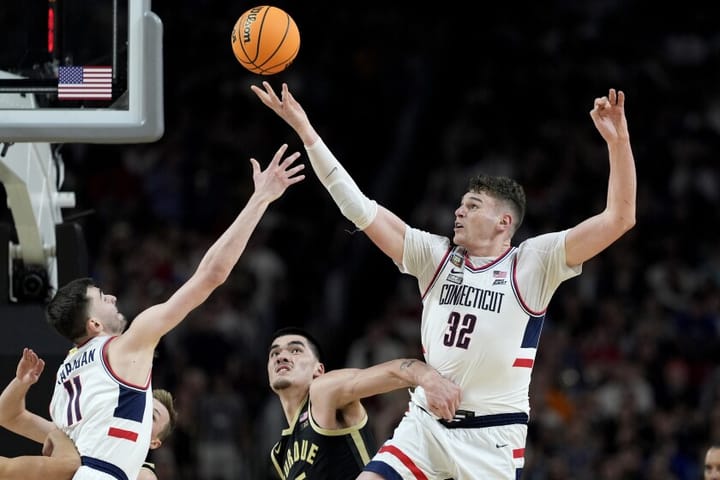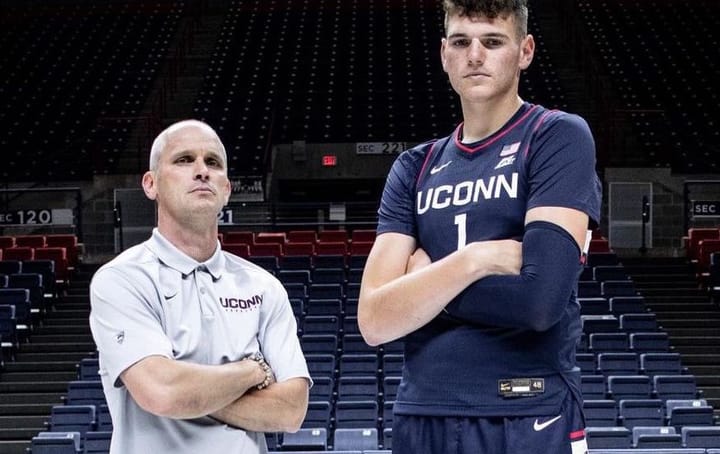CBB '24 - Week 2.5 Card & Leaderboard: You, Me, Money, Our Baser Selves
Wherein We Shout Out The 500th Anniversary Of Machiavelli's Finest Satire, Break Down How The Final Minute Of Kentucky-Texas A&M Overtime Got Borderline Sexual, And Tell You Why You Should Care About Seton Hall's Dylan Addae-Wusu
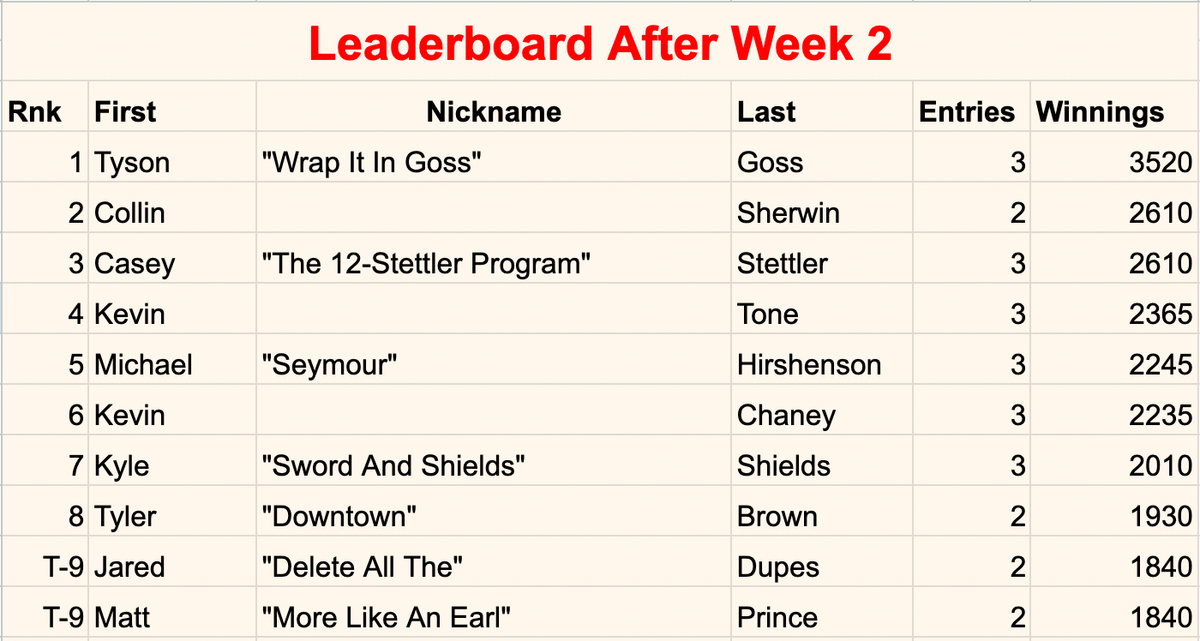
You, Me, Money, Our Baser Selves
1 - Machiavelli, Kalen DeBoer, And Holding Ourselves To Better Self-Introspection
2 - Robn Gets An Instagram Account Where We Debut Our First Film School ft. Orgasmic Jay Bilas
3 - Random Player: Who Is Seton Hall's Dylan Addae-Wusu And Why Should You Care?
4 - Week 2.5 Card, Leaderboard After Week 2, And Graded Week 2 Responses
1. Based Or Baser?
Exactly 500 years ago, Machiavelli published arguably his most famous comedy, La Mandragola.
The story is gross because Machiavelli is gross, yet it is also refreshingly unsanitized, funny, shocking, and simultaneously extremely dated and timeless. It functions like much of his work: as a mirror with an unflattering image staring back, and the plot is a battering-ram reminder that we like to act in our own, often corrupted and manipulative self-interest. How one views and values Machiavelli can often revolve around their understanding of what he says we should do with this information.
The plot is an insane farce. The wife of an incredibly gullible Judge cannot conceive, and he's in search of a medical cure for her. A man named Callimaco is obsessed with the wife and will stop at nothing to make her his. He and a co-conspirator devise an elaborate plot to convince the Judge that the Judge's wife should sleep with another man, and subsequently, to peer-pressure the wife into doing so (tldr: they get her mom and her priest on board via bribery).
Callimaco, pretending to be a doctor, tells the Judge that his wife must take a magic potion that will allow her to conceive, but the first person she sleeps with after taking the potion will die – so you should grab some random person off the street (like me! in disguise!) to be with her first.
OK! says the Judge, who then asks what will convince his virtuous wife to do this. The co-conspirator rattles off a grab-bag of incentivizers:
"You, me, money, our baser selves."
The wife does it. All is well. Everyone congratulates their own virtue. Peak farce.
We are reminded constantly throughout the cash-infested world of college sports, and of all multi-billion dollar industries, that money almost always plays a role in how things work out. But what about the role it plays vis-a-vis our baser selves?
Money doesn't walk around and act upon you. It lets you act around it, like it's someone holding the door for you on the street.
Right after he goes through a useful exercise (examining his own motivations) in a completely delusional manner (effectively: if there are many of us to blame then there is no one to blame!) the priest convinces the wife to do this by telling her, "Where there is a certain good and an evil that is uncertain, you should never abandon the good for fear of the evil" (paging Sam Bankman-Fried...).
The problem is that we don't usually take the time, or have the neutral ability, to give an honest assessment of a situation to determine if someone is doing more good than bad, or if the good is sure or if the evil is truly uncertain (can evil even be uncertain?). Even less so an assessment of ourselves.
Earlier this week, Alabama hired Washington Huskies football coach Kalen DeBoer to succeed Nick Saban. It will be fascinating to see if DeBoer can establish himself at Alabama long-term, or if his heretofore intense run of success hits a wall. The SEC has a strong track record of running new hires from the Northwest out of town before they even coach a game.
DeBoer surely felt that, right now, in the aftermath of getting shellacked by Michigan in the National Title Game, his stock would be the highest it will ever be in his career. There is also, to be sure, no other job in college football like the Alabama job. So he made a decision.
In Washington, the reactions were fast and furious from all sides. Some say DeBoer had to take the job and are excited for him. Others say he led the team to believe that he was staying in Fremont to continue to build the Washington program, only to go back on his word and leave hours later.
Whether or not you believe DeBoer led on the Washington players and staff, once the Alabama job came open (and he shared an agent with the person departing), DeBoer likely thought, "This is one of the only jobs in the country that I can guarantee is not a maybe bad, and definitely a sure good."
A sure good for who? Obviously, himself, but his baser self? Or the real self in each of us, that as a matter of routine human nature, we make decisions to advance the interests of?
Of course, we'll never fully know.
One of the banes of modern existence is that we feel empowered to comment on everyone else's decision-making. Judgement of others is very powerful: it requires no effort, it makes us feel righteous, and it gets us attention while ironically taking the attention off of anything we could be judged for.
Even when the decision of that third-party is either clearly good or clearly evil (and it is a false comfort to believe they usually are), the duration and quality of the analysis we use to determine the decision's nature are sorely lacking. In other words, if we have any takes at all, they must be hot, loud, immediate, and unequivocal. Whatever gets us the most attention. Whatever gets out there first.
And this is just for third-parties. What about for ourselves? What if we reacted to our own decision-making the way we react to that of public figures? Imagine Stephen A. Smith praising his own footage from two weeks' prior in one segment, followed by completely roasting his own take from a year ago in the next segment. Stephen A. Plays Himself, coming to ESPN+ this Summer. Now, that's a show I would watch.

Joking aside, examples from both five centuries ago and five days ago remind us that we would do well to look inward more often, to try as fallible as we are to examine our own actions and motivations, who they benefit, who they detract from, and why.
They also remind us that the merits of our decision-making – did we make the righteous or honorable choice – are not always obvious. In truth, they often sit on a razor's edge of margin for error, either way. They are life's grey. But in the era of always being right about everything, instead of receiving a careful analysis on the merits, they receive either quick praise or quick vitriol.
The next time we feel the urge to fire off the quick tweet about something someone else did that really got us going, maybe we turn inward.
Maybe we ask ourselves, are you making brutal but necessary decisions that achieve more good than harm in the long-term?
Or are you just tricking someone so you can sleep with their wife?
2. Mashburn, Mitchell, Miller (...and Milking?) Oh My!
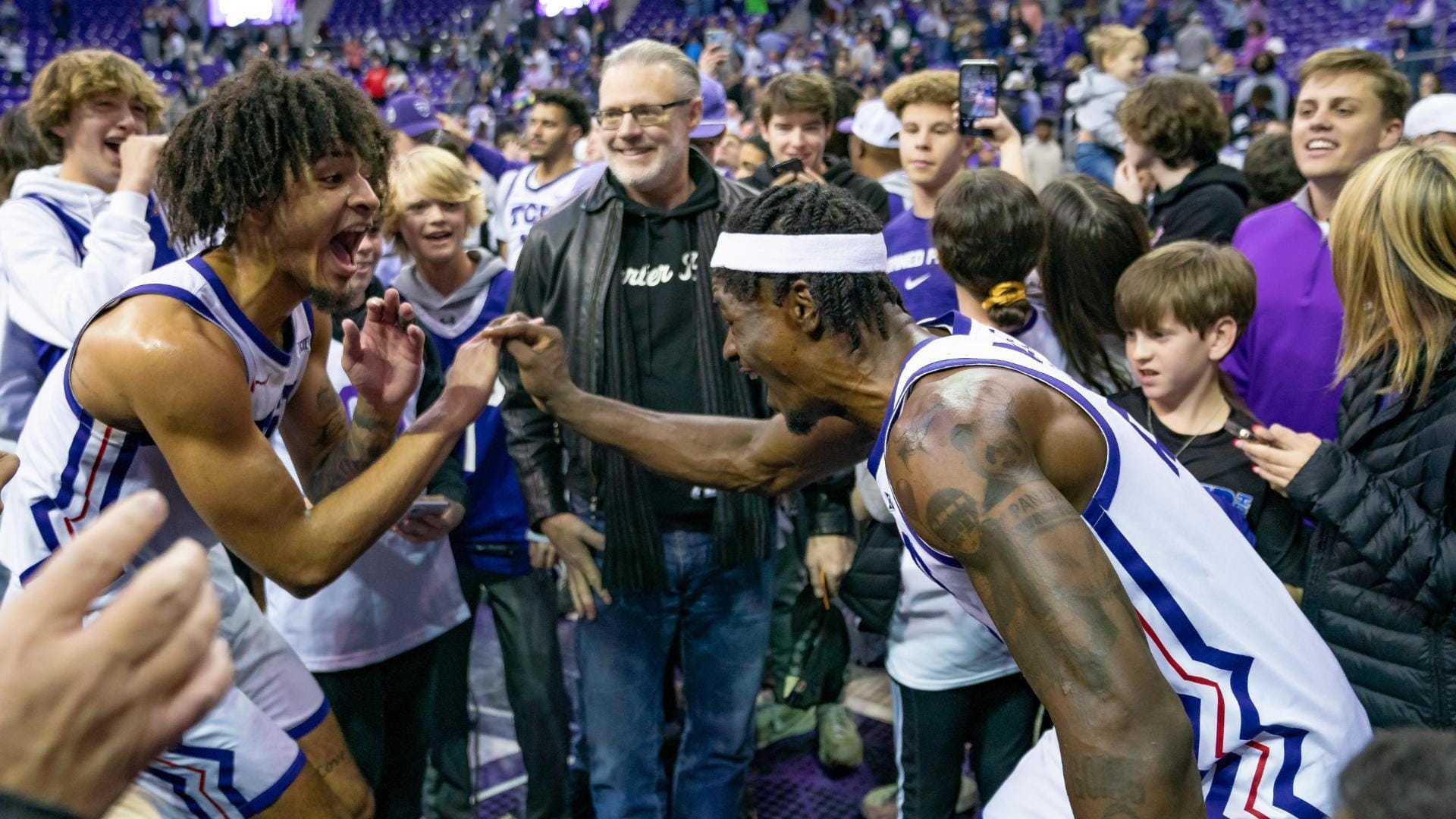
While the majority of points are still being allocated across win/loss markets – contestants grabbed 5,440 winnings off of Xavier's drubbing of Providence, and 3,819 winnings from Kansas' win over Oklahoma – our new EXTRA player prop markets are starting to get some love.
New Mexico's Jamal Mashburn Jr. hit the at least 17 points market toward the game's very end with a furious second half run after shooting 1-7 in the first.
Per longtime Robner Andrew 'The Lightning" Bolte, the UNM EXTRA market should have been a blocks prop.
San Diego State has missed 9 shots, but 8 of those are blocks? Good god 😖
— Andrew Bolte (@albolte) January 13, 2024
The most points of any EXTRA market (3,100) went to TCU's Emanuel Miller to also score at least 17 points.
He did not get there, but he did do something arguably more important.
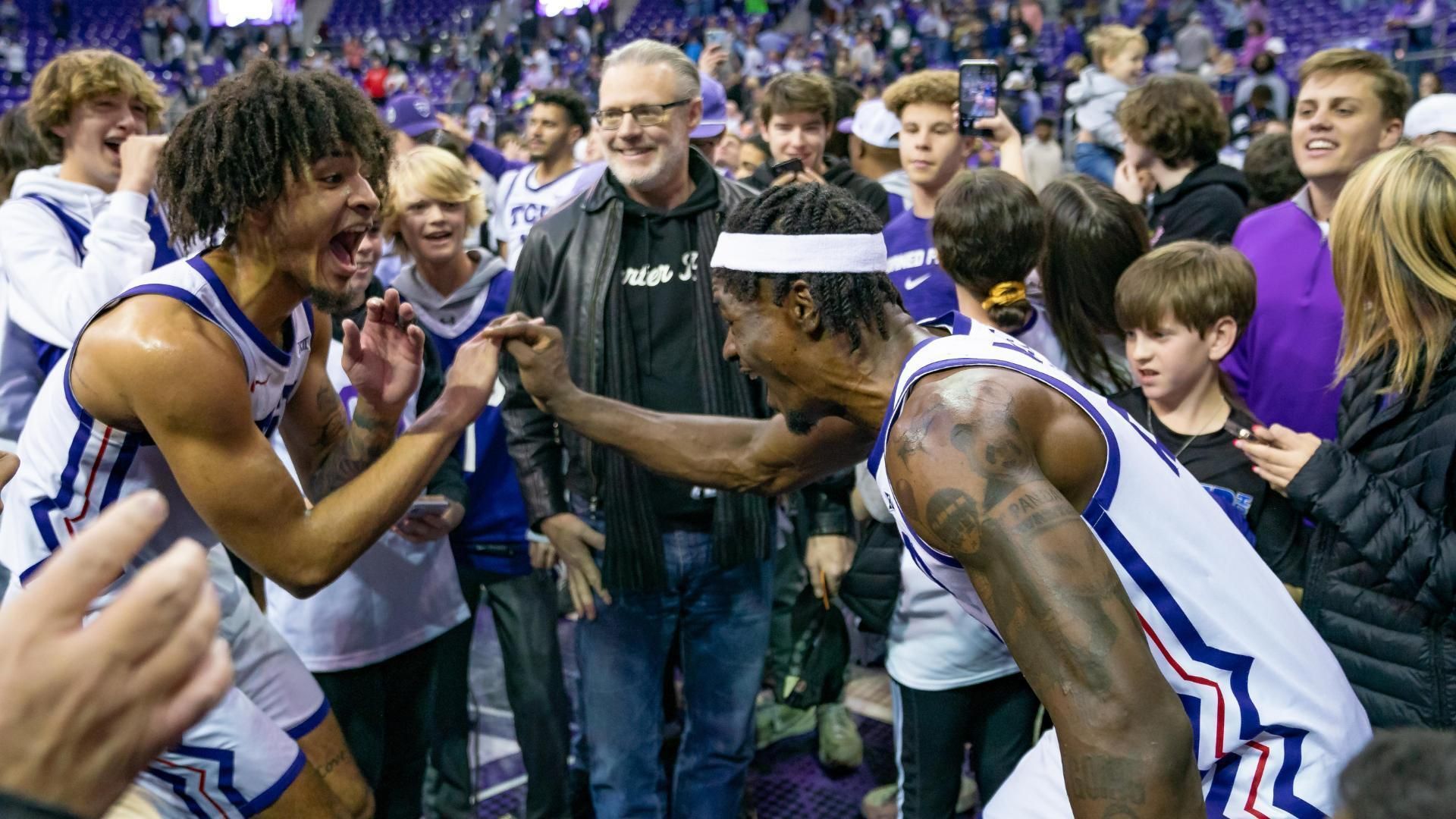
The best game of the slate (even better than Utah State's comeback) was Kentucky-Texas A&M, an overtime thriller with punch after counter-punch.
Kentucky forward Tre Mitchell needed 15 made threes, rebounds and assists combined, and he got there on just rebounds (13) and assists (6) alone (kudos to Mitchel market winner and contestant newcomer Bob Moncrief).
A&M's Wade Taylor made clutch shot after clutch shot, which helped hit his 7 made field goals market, exactly (shout out to winning contestant Eric "How Can This Man Possibly Be" Single).
Texas A&M's strategy in overtime was to just never give Kentucky the ball, and it was all quite stirring. Coach Cal got quite bored with it all, Buzz Williams ripped all manner of buttons and seams, and Bilas and Shulman were simply overcome.
We broke it all down on our new Instagram account that, with my deepest regrets, exists.
Film School: Kentucky-A&M Ending
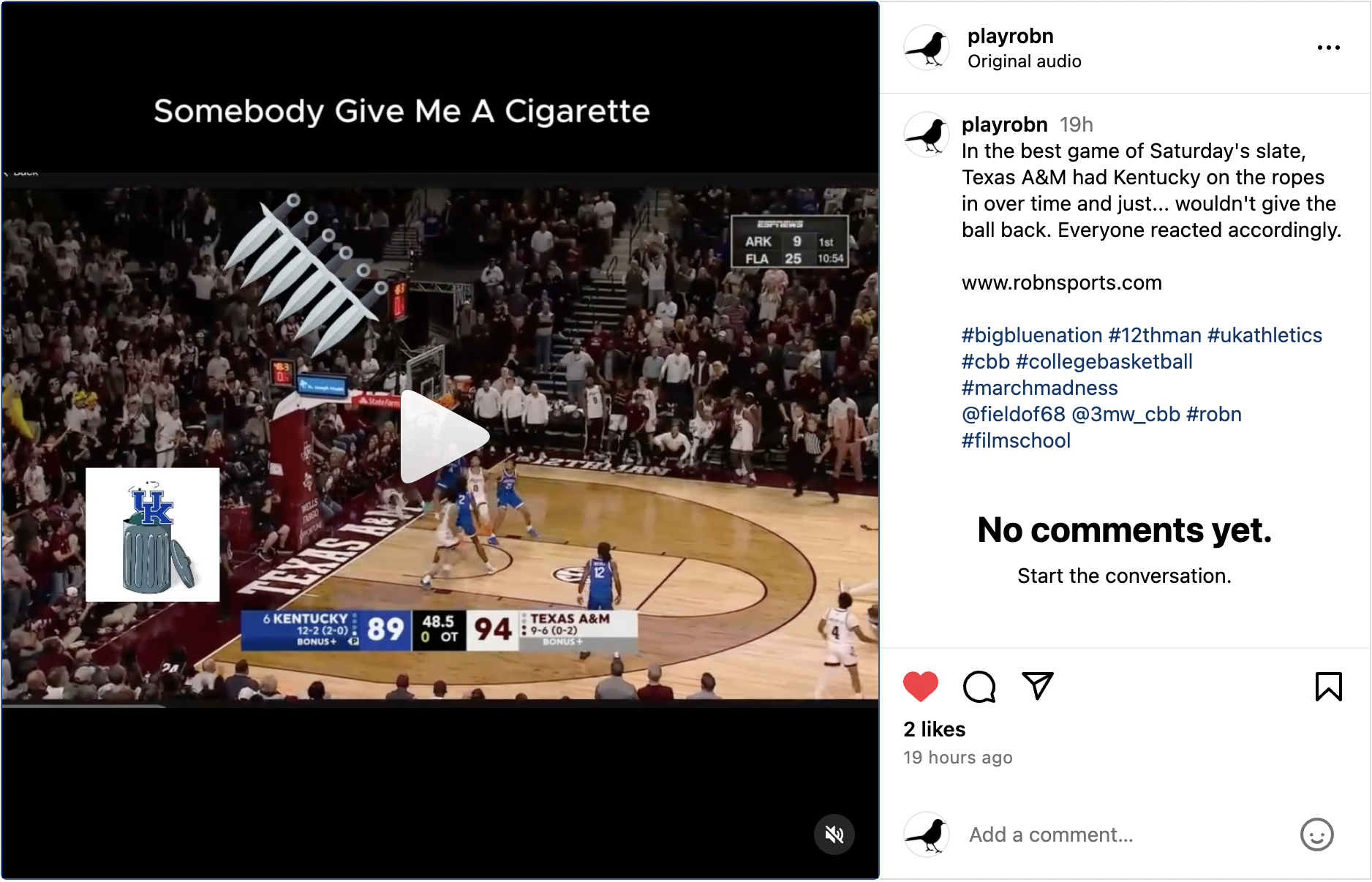
There are two types of college basketball fans.
Those who love this, and those who hate this.
Bill Walton is a national treasure pic.twitter.com/NERKHDFW1N
— Play Robn (@PlayRobn) January 14, 2024
3. Wusu Be So Kind As To Believe In The Pirates
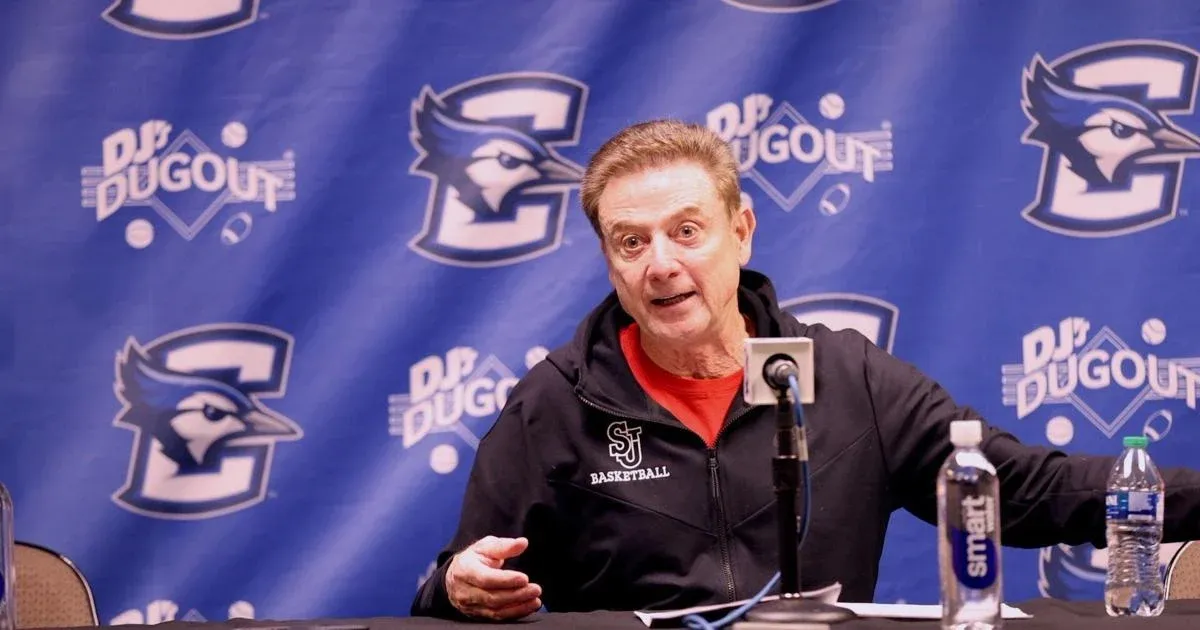
Shaheen Holloway's Seton Hall team is led by five seniors, each of whom transferred to the school at some point in their collegiate careers.
One the lesser known of the five nationally, and one of the most recent transfers, is guard Dylan Addae-Wusu.
Wusu came to the Pirates from in-conference foe St. John's. When Rick Pitino, who hopes to kill himself, took over for the Red Storm last offseason, he did a mini-Mick Cronin. Some nuggets from Pitino in his very first press conference about 10 months ago:
“A lot of players probably won’t be back on this team because they’re probably not a good fit for me."
“...It takes a certain type of player to play for me...and if you’re not, it’s just not a good fit, it just doesn’t work.”
“I asked everybody about the character on the basketball team. To be honest with all of you, I didn’t get glowing reports."
One those character-less scums was Wusu himself, who took the high road in response to Pitino's barbs.
“Shout out to Coach Pitino, he’s a great coach with a rich history. That’s not what I’m focused on right now. I’m here now, and my mind and my focus is here at Seton Hall. I just wish that program the best of luck.”
Beyond the obvious storyline of player-faces-former-team-coached-by-guy-who-didn't-want-him, Wusu himself demands attention.
When recruited by St. John's in 2020 class, he wasn't even the best player to be going to the Red Storm from his own high school. Wusu was a tag-along with four-star recruit Posh Alexander, who sounds like freckled villain at a British boarding school but is actually now another inter-Big East transfer like Wusu, having left SJU for Butler after last season.
Wusu had no ranking, no stars, no anything in his recruiting profiles on the major sites. He was supposed to be an afterthought, an emergency benchwarmer.
Now he's one of the leaders on a strong Seton Hall team with the best record in the Big East, averaging around 8.5 points (a point total he's put up for each of the last three seasons), 5 rebounds, 2 assists and 2 steals over 30 minutes per game.
Hmm, sounds like an interesting player for a combo EXTRA market.
Click the image below to throw some points on Dylan tomorrow night.
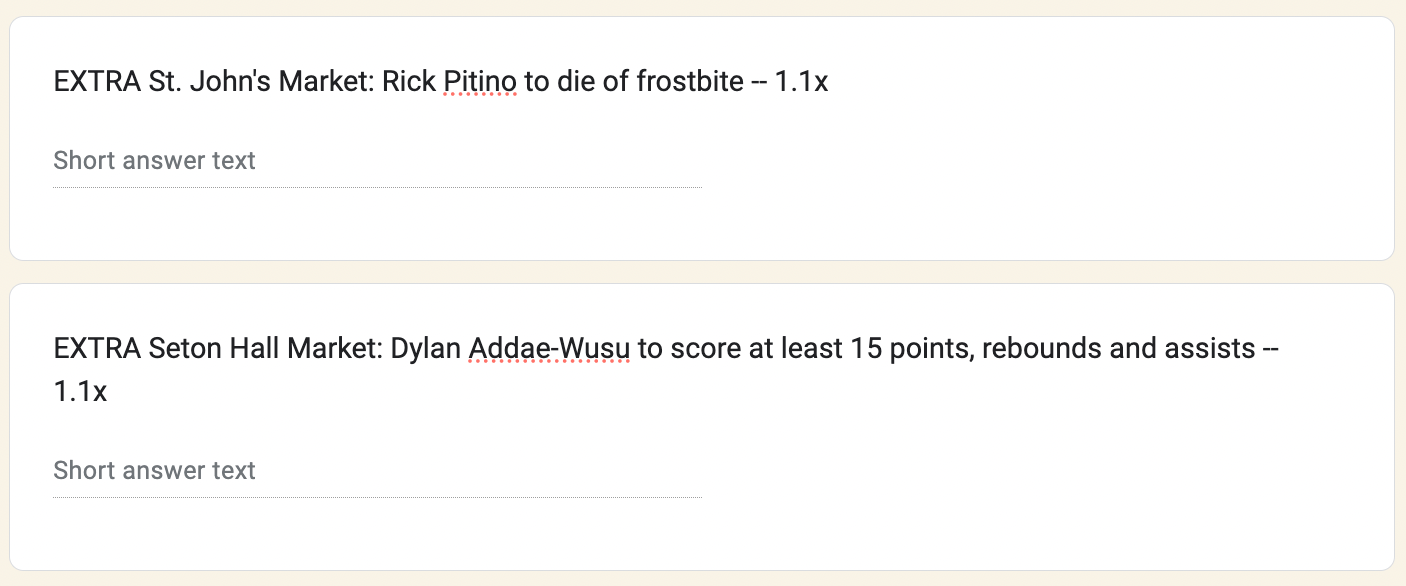
4. The Week 2.5 Card
Get your fill of Florida-Tennessee, Iowa State-BYU and St. Johns-Seton Hall on Tuesday.
And check out our pre-market markets on Mississippi State-Kentucky, Nevada-San Diego State, and Creighton-UConn on Wednesday (only I am stupid enough to hang a line before we know whether Donovan Clingan is back for the Huskies).
The Leaderboard
Leaderboard Through Week 2
If you're looking for everyone's individual picks from the Week 2 card, and their graded responses, they're already posted to the site. These will usually be posted over the weekend, but not emailed to subscribers. You can find them in the CBB section under the post labelled Week 2 Responses.




